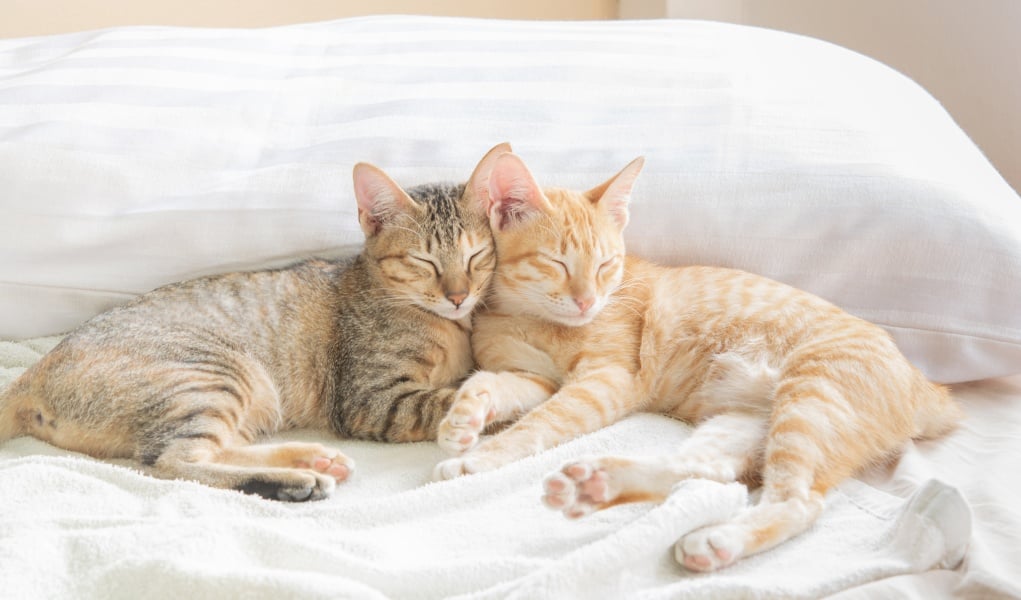Nothing makes you happier as a cat owner than scratching your kitties chin and listening to her purr. Why do cats purr? Is it just because they’re happy?
Research actually shows that there are many reasons why cats purr.
After a recent conversation with my veterinarian, I learned that purring isn’t always voluntary. That means that your cat doesn’t always purr on purpose.
Kittens are born blind and deaf. They learn to purr when they are just a couple of days old—before they can even hear or see!
Most experts believe that this behavior is developed to communicate with the mother about the kitten’s location and hunger level.
So, why do cats purr in adulthood? It’s not like we don’t know where they are, and most cats always have access to food.
After a bit of research and a chat with my veterinarian, I figured out why cats purr. Keep reading to find out!
Why Do Cats Purr?

A recent study revealed that a special “pad” embedded in the vocal folds of a cat’s larynx allows it to make a purring noise.
Unlike meowing and chirping, which come from the cat’s voice box, purring is a unique sound that cannot be made without this special “pad.”
Why do cats purr?
There are many reasons why cats purr, and it’s not just because they are happy.
While it’s not the only reason, we know cats purr when they are happy.
This is noticeable when your cat is basking in the warm sunlight, purring loudly, or when he begins to purr as soon as you start rubbing his cheek.
Cats also purr when they are hungry. A research study looked at the purring sound of cats that were not hungry compared to the purring sounds of hungry cats.
They were not the same.
When some cats are hungry, they combine their purr with a small cry.
Researchers believe that humans are more susceptible to this sound, which means we are more likely to give in and feed them.
Many cats will also purr when they are in pain. Experts believe it is a mechanism injured cats use to soothe themselves.
Cats are also easily stressed, and they may use purring as a way to calm themselves after a particularly stressful event.
Some research even suggests that purring helps a cat heal.
The slight vibrations caused by healing may help to heal wounds, repair muscles and tendons, and reduce pain and swelling.
While we see purring as an adorable behavior unique to our feline friends, we now know that there are actually a number of reasons why cats purr.
What if my cat doesn't purr?
Like all other behaviors, some cats purr more than others. If your cat doesn't purr often, it doesn't mean he's not happy.
He'll show other signs of happiness. Happy cats have a more relaxed posture with a straight, still tail.
Quite the opposite, a stressed cat will have a stiffened posture, and his tail may be swishing.
Happy cats enjoy playtime and eating regular meals. You know your cat best. Observe his typical behavior.
Your cat may be social or a loner. He may purr often or not purr at all.
As long as your cat is acting like himself, you have nothing to worry about.
Changes in behavior are a sure sign that something isn't right with your pet.
READ NEXT: Why Do Cats Knead and How To Stop It?












